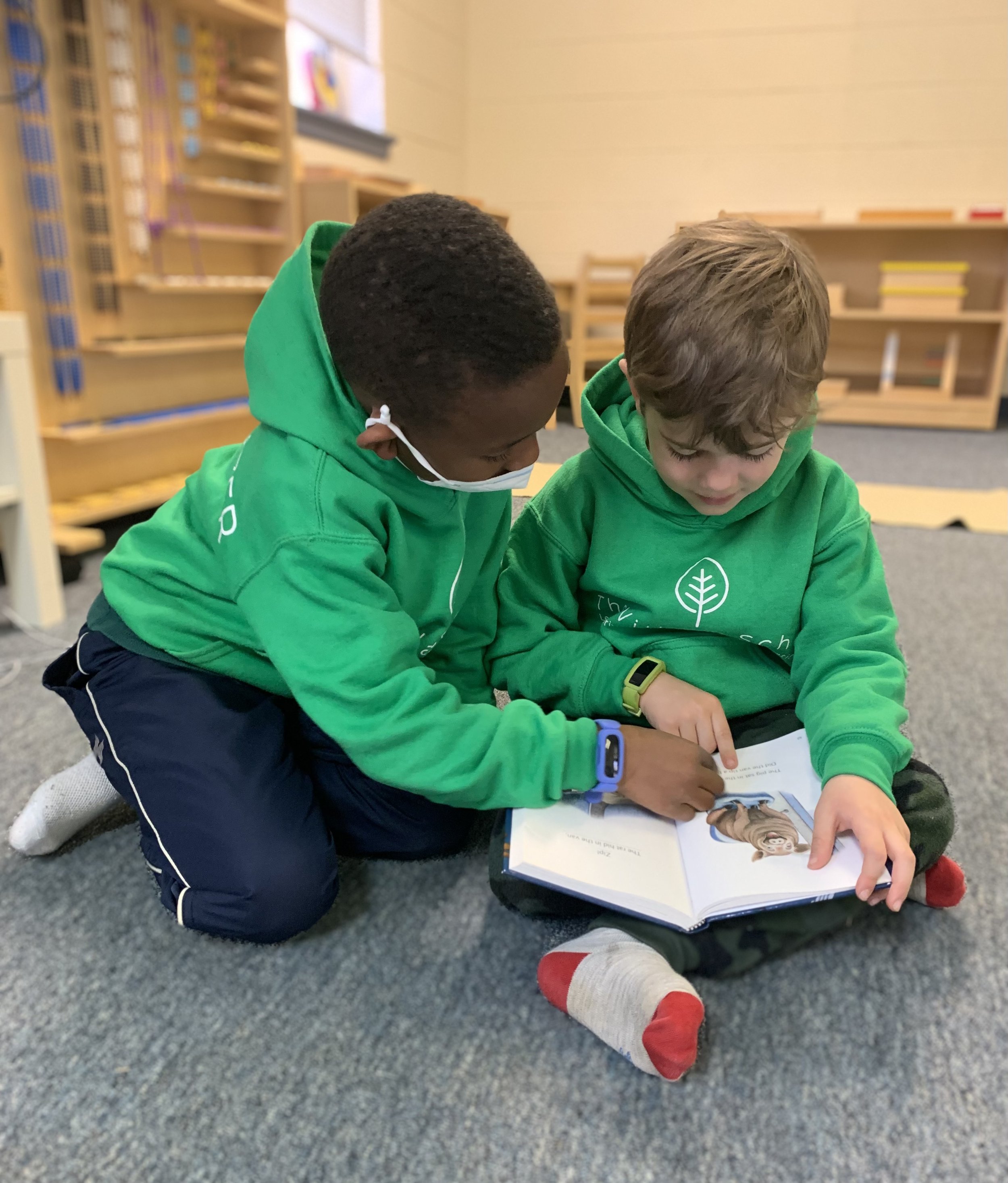4x
more likely to experience self-worth in school
9x
more likely to experience a sense of purpose in school
8x
more likely to experience engagement in school
At The Village School, we believe that children should have agency in their learning.
How Do We Give Children Agency In Their Learning?
These Are The 3 Pillars Of The Village School’s Learning Design:
Learner-Centered
Our learner-centered approach is designed to nurture self-directed learners who are leaders of themselves and their communities. Instead of a “one-size-fits-all” curriculum, we respect each child’s unique path to growth through a flexible learning plan that allows them to identify, pursue, and accomplish their goals. With the support of guides and 21st century learning tools, children work to master reading, writing, and math skills, as well as pursue individual passions.
Play- and Project-Based
Playful learning is a goal of ours each day, not just for our youngest learners, but for learners of all ages. Research shows play has enormous learning and social benefits across all ages, but, by the time children are in conventional classrooms, they’ve been taught to suppress their natural play-based curiosity. At TVS, kids learn to engage in real-world experiences through material amounts of time at play and creative, hands-on projects. Every experience encourages collective problem-solving, trial and error, failure, and reflection. Whether engaging in hours of unstructured play, launching a start-up business, programming a robot, or planting a garden, our students build real-life skills every day.
Community-Driven
In our community, children work closely with peers on collaborative projects, engage openly with educators on their goals, connect meaningfully with community members, and grow alongside parents who partner rather than direct. This creates an environment that balances freedom with responsibility, where young people feel truly seen, supported, and capable. In response, they take risks, dive deeply into their interests, and develop the confidence that comes from being truly trusted.
TVS Learning Design Features
Exhibitions of Learning
In the education world, an Exhibition of Learning is described as a performance-based summative assessment – another way of describing anything that is not a multiple choice, standardized test. There are decades of research that reveal the inadequacies of standardized, multiple choice tests. Most damaging are the studies that show that success on a standardized test predicts little to nothing about a person’s success in their life.
The word assessment is derived from the Latin root assidere, which means “to sit beside”. At The Village School our goal is to design assessments that are true to this definition. We believe in assessments for learning, not of learning; assessments that require learners to be “active protagonists” in their own experiences, not passive consumers. We believe in assessments that literally require us to “sit beside” each learner. Exhibitions of learning fulfill all of these goals.
Badge Plans
Badge Plans are a key feature of our learning design. We do not use letter grades nor do we give report cards. Instead, each learner has a badge plan for the year. Learners will receive feedback on the work they produce from their peers, guides and from professionals in certain fields. Their progress will be documented through their achievement and mastery of badges in the Core Skills of Writing, Language Arts, Civilization, Math, and Reading. Socratic discussions. For our ES and Middle School learners, the software programs in language and math track the progress of learning and can be accessed by parents at any time.
Badges can be translated into traditional transcript requirements for families relocating, college applications, Curriculum Vitae, and to celebrate authentic accomplishments of each Village School graduate. (Completion of a badge equals mastery of a subject area and translates into a traditional A+.
The Language of Learning at TVS
We believe in the power of language. Research from across contexts has shown that our language matters. Ron Ritchhart, a principal researcher at the Harvard Graduate School of Education, writes extensively about the power of language in our schools, and the power the words we use have to shape the culture of thinking and learning in our communities. Language expert James Pennebaker, and even social science researcher Brene Brown have studied language in their respective fields and have come to similar conclusions: our language and words have the power to shape our experiences.
At The Village School we believe the language we use to describe each other, our learning spaces, and learning outcomes are essential to shaping powerful learning. Our language of learning is different and intentional.
Profile of a TVS Learner
LEARN TO KNOW
Math
Reading
Civilization
Science
Health
LEARN TO DO
Goal Setting & Reflection
Entrepreneurship
Design Thinking
Communication
Creative Expression
LEARN TO BE
Curiosity
Self-direction
Resilience
Self-awareness
Purpose
Growth Mindset
LEARN TO LIVE TOGETHER
Collaboration
Compassion
Respect
Accountability
Leadership
Gratitude





